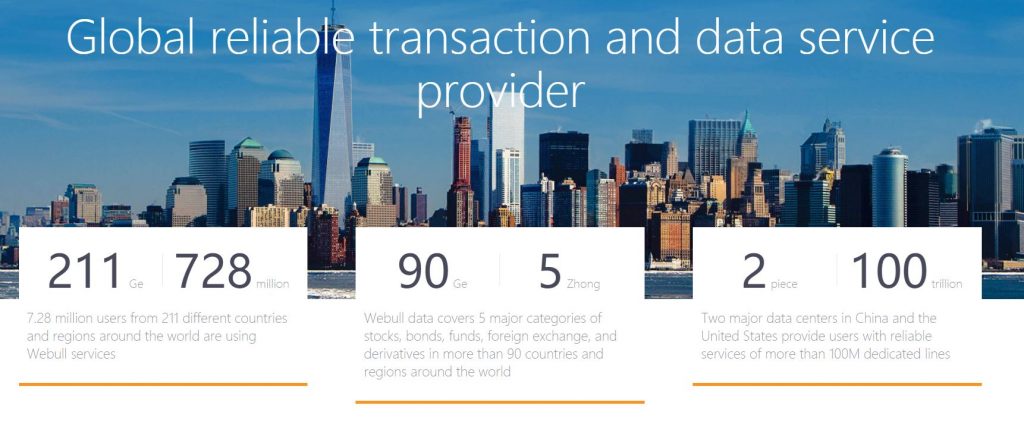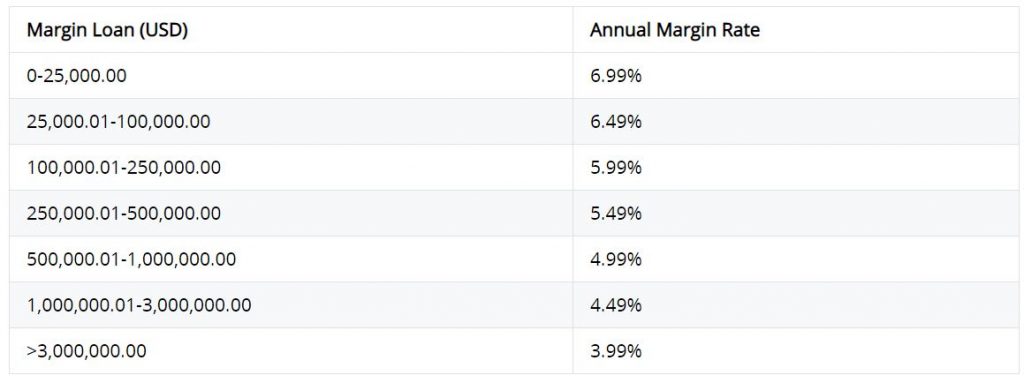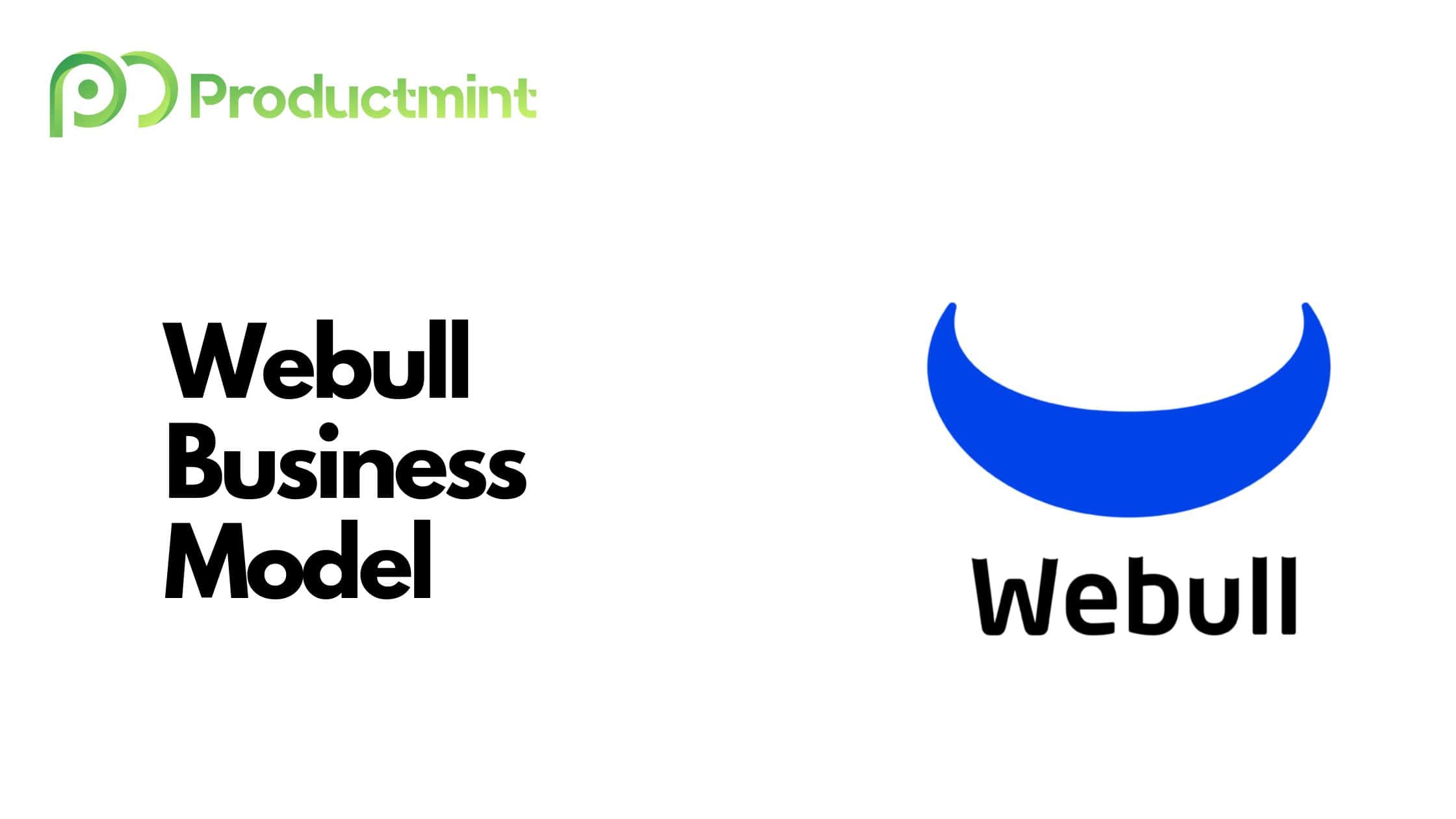Executive Summary:
Webull is a FinTech company that enables users to trade financial commodities such as stocks or exchange-traded without paying a commission.
Webull makes money via order flow payments, short seller fees, subscriptions, interest paid on margin, account management fees, and interest on free credit balances.
Established in 2017, Webull has grown to become one of the leading online brokerages in the United States. The platform now boasts over 2 million users.
How Webull Works
Webull is an online brokerage that allows users to trade stocks and other financial commodities without paying commission.
The platform, furthermore, does not impose any requirements on minimum deposits. Users can get started trading with a minimum investment of $1.
Apart from (fractional) stocks, users can also trade exchange-traded funds (ETF), currencies (both physical and virtual ones, including cryptocurrencies), and other commodities such as metals and livestock.
Additional features include in-depth analysis tools (such as different technical indicators or advanced charting), extended trading hours (both pre-market and after hours), or the ability to trade from either a brokerage or IRA account.
As such, Webull is aimed at traders that seek more sophisticated tools to make their investment decisions.
Webull Financial LLC is part of SIPC (Securities Investor Protection Corporation) and a member of the Financial Industry Regulatory Authority (FINRA). Therefore, each account is ensured up to $500,000 (including $250,000 for claims for cash).
The company also offers dedicated online courses on a variety of topics including cryptos, ETFs, options, and more.
The Webull platform can be accessed via a browser, desktop (Windows, Mac, and Linux), as well as mobile (Android and iOS) devices.
A Short History of Webull
Webull, headquartered in New York City, was launched in 2017. The firm arose out of Fumi Technology, a Hunan-based (China) company founded by Wang Anquan in 2016.
Anquan spent the majority of his professional career in finance-related functions. He joined Alibaba Group back in 2006 and eventually rose to become a technology director at Ali Financial as well as a director of Taobao’s Loan Division.
In 2014, he joined HengFeng Bank as the president of the Department of Online Financial Asset Transactions. Just a year later, he moved on to spearhead Xiaomi’s finance division as general manager.
Fumi Technology was incubated as a result of his tenure at Xiaomi, which became its first backer with a seed round of CN¥ 50 million (around $7.5 million). With potent financiers in the background, Fumi aimed to establish a worldwide presence early on.
The driver of said expansion became its Webull application, which launched in June 2017. Anquan’s ambition early on was to establish Webull in the North American peninsula.
To gain credibility and legitimacy, the firm established its business-related functions in New York City. Furthermore, it hired Anthony Denier, a Wall Street veteran, to spearhead its U.S. business as CEO.
Prior to working at Webull, Denier spent close to 2 decades in various finance-related positions. He held positions at Credit Suisse, ING, and most recently worked as CEO at LXM Group, a small brokerage with offices in London and New York.
When Webull launched in 2017, its initial focus was on providing users with sophisticated charting tools to make better trading decisions.

But having a front-row seat on how Robinhood was transforming the world of investing via its commission-free trading model, the team quickly decided to pivot into making Webull a free investment platform.
Luckily, Webull had a sufficient amount of backers to finance this transition. To this date, Fumi Technology has raised another CN¥ 550 million (~ $85 million) in 3 successive funding rounds.
The money, furthermore, allowed them to invest big into marketing Webull. For instance, the company bought a few nationwide commercial slots on CNBC, netting them masses of new customers.
At the time, many other online brokerages like Charles Schwab or E*Trade were still relying on commission-based models. Robinhood, on the other hand, was lagging more advanced means of analyzing stocks, leaving many senior investors hesitant to join.
Webull cleverly placed itself at the intersection of these 2, allowing them to attract many of their customers.
Another growth hack that Webull employed was to rely on influencers to promote the service. New users would receive a free stock when signing up, which motivated many to give Webull a try.
The company capitalized on its growth by expanding its product base. In 2020, for instance, it announced it would launch a robo-advisor service to compete against the likes of SoFi or Wealthfront.
That same year, stay-at-home orders and government stimulus checks led to an unprecedented increase of new retail investors – many of whom joined Webull. In 2020 alone, Webull was able to increase tenfold, from 200,000 to over 2 million.
Unfortunately, the firm wasn’t off to the best start in 2021. As part of the GameStop (as well as AMC and KOSS) trading craze, Apex, its clearing firm, forced Webull to stop accepting new opening positions in the above stocks.
This certainly did not sit well with its customers who began accusing the company of market manipulation while, in fact, costs associated with settling the trades were the actual reason for implementing the trading halt. Luckily, just a few hours later, Webull allowed users to buy and sell stocks again.
Webull continued to aggressively market its business. In September 2021, for example, it signed a massive $30 million / year sponsorship deal with the Brooklyn Nets.
Additionally, the company expanded its product portfolio by adding fractional shares and crypto trading.
Meanwhile, speculation arose that Webull was holding talks with crypto exchange FTX to be acquired by the company. Instead, the company announced that it would expand its business into Singapore, its first entry into the Asia-Pacific region.
How Does Webull Make Money?
Webull makes money via order flow payments, short seller fees, subscriptions, interest paid on margin, account management fees, and interest on free credit balances.
Let’s dive into each of these revenue streams in more detail below.
Payment For Order Flow
Whenever a user places an order on Webull’s platform, that order is sent to a so-called market maker which compensates the brokerage (Webull, in this case) for bringing in deal flow.
The market maker will try to make a profit on the so-called bid-ask spread (or turn). This is the difference between a quoted rate for an instantaneous sale (bid) and buy (ask). Trades are algorithmically executed, allowing a market maker to facilitate thousands of trades at any given time.
A market maker is oftentimes able to provide a better offer, which in turn allows them to compete against other stock exchanges (such as the NASDAQ). Webull works together with the Apex Clearing Corporation to settle these transactions.
The brokerage then receives a fraction of the market maker’s profit (on the bid-ask spread) for every transaction facilitated through its platform.
While Webull only makes fractions of a cent on each transaction, revenue can quickly add up due to the high amount of trades executed. It is therefore in Webull’s interest to acquire as many customers as possible.
Although the practice of order flow payments has substantially decreased the cost of trading for retail investors, it is not without fault. The process, due to the automatic execution of trades, oftentimes lags any form of transparency.
Second, retail investors may not always get the best possible price on their stock sales. Third, because of the sheer amount of trades executed, market makers can heavily influence market volatility.
Subscriptions
As previously stated, Webull puts great emphasis on supplying its users with more advanced trading metrics and tools.
In September 2019, the platform announced a partnership with Nasdaq TotalView to provide traders with depth-of-book data.
Access to so-called Level 1 data is free of charge. Level 1 data includes information on equities, ETFs, indices, forex, futures as well as data on over 100 stock exchanges.
If users want to get deeper insights, they can do so by subscribing to Level 2 data (powered by TotalView). Level 2 data grants you access to the 30 best bids and offers on NASDAQ, the Net Order Imbalance Indicator (NOII), and many more.
Traders can subscribe to Level 2 data for a minimum of $2.99 per month (and up to $24.99).
Offering a premium subscription to sophisticated traders also means that said users are likely trading more, which in turn boosts the firm’s order flow revenue.
Margin Trading
Trading on margin allows Webull users to borrow money from the company to purchase stocks and other securities.
Webull generates revenue from the interest that it charges traders in exchange for issuing the loan. The company charges anywhere between 3.99 percent to 6.99 percent interest. A detailed breakdown can be found here:

The amount of money that can be loaned is dependent upon the cash that a user holds within his or her account. This acts as a quasi-down-payment in case of a payment default.
Short Selling Fees
Similar to investing on margin, Webull also loans shares to short sellers. It then charges interest on the dollar equivalent loaned.
When short selling, traders believe that the price of a certain stock will go down at a certain point in time (called expiration date).
A trader must have a margin account to open a short position. He or she will normally pay interest on the value of the borrowed shares while the position is open.
To close a short position, a trader purchases the shares back on the open market, preferably at a price point that is lower than what he or she borrowed the asset for. The trader then returns these shares back to the lender or brokerage.
That’s where Webull comes in. It acts as the intermediary that issuing the stock loans and consequently generates money from the interest paid.
Opening a short position on Webull requires a minimum account balance of $2,000. The amount of interest paid varies on a daily basis and is, furthermore, dependent on the type and amount of stocks loaned.
Account Management Fees
Webull collects a variety of other account management fees, which can be found on its pricing page.
For example, if users want to trade over-the-counter securities such as stocks that require foreign settlement (F-stocks), then Webull charges $5 to purchase and $0.05 to sell them .
Additionally, if you want to deposit cash via a wire transfer, then Webull’s clearing partner Apex is charging you $8 to do so.
However, it has to be noted that most of those fees are indeed paid to Apex, which provides all relevant clearing services.
Interest On Account Balances
Lastly, Webull, much like any other licensed brokerages, also generates revenue from the cash that sits in its customer accounts.
Many brokerages, such as Robinhood, pay interest on that cash in an effort to lure in more customers (again, boosting order flow payment revenue in return).
The money that is located in those accounts is then primarily being deposited in interest-bearing bank accounts.
